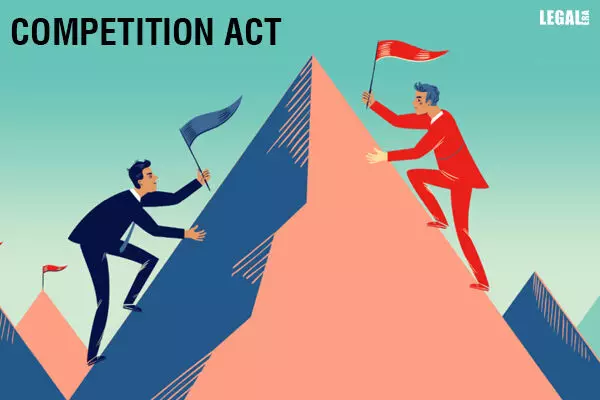- Home
- News
- Articles+
- Aerospace
- AI
- Agriculture
- Alternate Dispute Resolution
- Arbitration & Mediation
- Banking and Finance
- Bankruptcy
- Book Review
- Bribery & Corruption
- Commercial Litigation
- Competition Law
- Conference Reports
- Consumer Products
- Contract
- Corporate Governance
- Corporate Law
- Covid-19
- Cryptocurrency
- Cybersecurity
- Data Protection
- Defence
- Digital Economy
- E-commerce
- Employment Law
- Energy and Natural Resources
- Entertainment and Sports Law
- Environmental Law
- ESG
- FDI
- Food and Beverage
- Gaming
- Health Care
- IBC Diaries
- In Focus
- Inclusion & Diversity
- Insurance Law
- Intellectual Property
- International Law
- IP & Tech Era
- Know the Law
- Labour Laws
- Law & Policy and Regulation
- Litigation
- Litigation Funding
- Manufacturing
- Mergers & Acquisitions
- NFTs
- Privacy
- Private Equity
- Project Finance
- Real Estate
- Risk and Compliance
- Student Corner
- Take On Board
- Tax
- Technology Media and Telecom
- Tributes
- Viewpoint
- Zoom In
- Law Firms
- In-House
- Rankings
- E-Magazine
- Legal Era TV
- Events
- News
- Articles
- Aerospace
- AI
- Agriculture
- Alternate Dispute Resolution
- Arbitration & Mediation
- Banking and Finance
- Bankruptcy
- Book Review
- Bribery & Corruption
- Commercial Litigation
- Competition Law
- Conference Reports
- Consumer Products
- Contract
- Corporate Governance
- Corporate Law
- Covid-19
- Cryptocurrency
- Cybersecurity
- Data Protection
- Defence
- Digital Economy
- E-commerce
- Employment Law
- Energy and Natural Resources
- Entertainment and Sports Law
- Environmental Law
- ESG
- FDI
- Food and Beverage
- Gaming
- Health Care
- IBC Diaries
- In Focus
- Inclusion & Diversity
- Insurance Law
- Intellectual Property
- International Law
- IP & Tech Era
- Know the Law
- Labour Laws
- Law & Policy and Regulation
- Litigation
- Litigation Funding
- Manufacturing
- Mergers & Acquisitions
- NFTs
- Privacy
- Private Equity
- Project Finance
- Real Estate
- Risk and Compliance
- Student Corner
- Take On Board
- Tax
- Technology Media and Telecom
- Tributes
- Viewpoint
- Zoom In
- Law Firms
- In-House
- Rankings
- E-Magazine
- Legal Era TV
- Events
Competition Commission of India finds increase in players and prices indicative of healthy competition

Competition Commission of India finds increase in players and prices indicative of healthy competition
Cites that there was no infringement of the Competition Act
The Competition Commission of India (CCI) has held that the entry of at least two entities for the purchase of pollution dust indicated that more players were likely to enter the market. Also, the increase in procurement prices was symbolic of greater competition.
The Coram of Ravneet Kaur (Chairperson), Anil Agrawal (Member), and Sweta Kakkad (Member) thus barred the complaint filed by an individual Jarnail Singh (informant') against Madhav KRG Ltd (OP-1) and Punjab Pollution Control Board (OP-2) alleging contravention of the provisions of the Competition Act, 2002.
OP-1 carries out extraction of zinc out of the pollution dust and OP-2 is the state pollution control board entrusted with the implementation of environmental laws in Punjab.
The informant stated that pollution dust was a by-product of the steel induction furnaces in the core production process and he had installed Air Pollution Control Devices (APCD) as per the directions issued by OP 2.
While controlling the pollution, the APCDs produce pollution dust with around 40 percent of zinc composition. OP 2 treats the pollution dust as hazardous waste. However, very few entities are allowed to purchase the same from the induction furnaces. It also imposes penalties if the pollution dust is traded in the open market.
OP-1 was allowed by OP-2 to purchase the pollution dust and was known to be a dominant player. The pollution dust was to be sold at a very low price. OP-1, via its dominant position, purchases pollution dust at Rs.8 per kg whereas zinc is priced at Rs.325 per kg.
Later, with the entry of two other entities - Jogindra Castings Pvt Ltd and R.P. Multimetals Pvt Ltd, OP-1 and a few other units started purchasing it at Rs.20 per kg and, subsequently, at Rs.25 per kg.
As per the content of zinc in the pollution dust, its market value is estimated to be around Rs.40 per kg, considered significantly higher than offered to the induction furnaces.
The informant accused OP-1 of conniving with OP-2 and abusing its dominant position in contravention of Section 4 of the Competition Act. It alleged that it was making undue profits by extracting zinc from the pollution dust procured from induction furnaces at low prices vis-à-vis the zinc’s market rate.
The informant pleaded before the CCI to direct the relevant authorities (removing pollution dust from the category of hazardous waste) to determine the prices by market forces rather than by certain business entities. It further requested for the fixation of a lower limit at which the commodity could be traded and criminal action could be taken along with the imposition of penalties against OP-1.
The Commission, however, rejected the plea on noting that the bills/invoices provided along with the information denoted that the procurement price of the pollution dust had increased from Rs.8 per kg to Rs.25 per kg. The CCI said that there was no specific allegation against OP-2 regarding Section 4 violation of the provisions.


